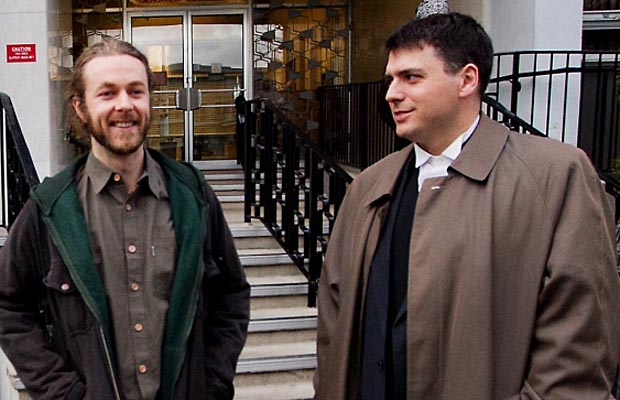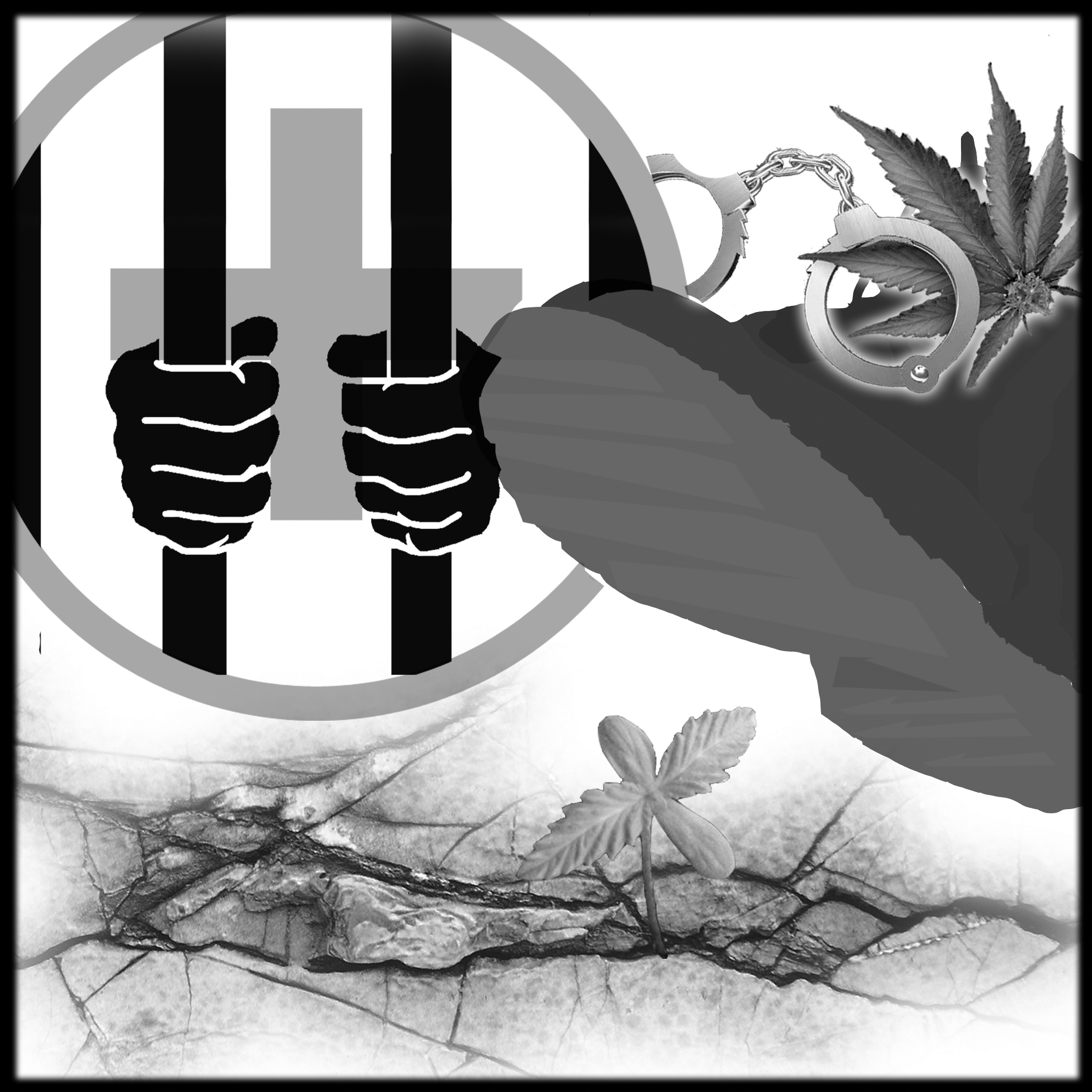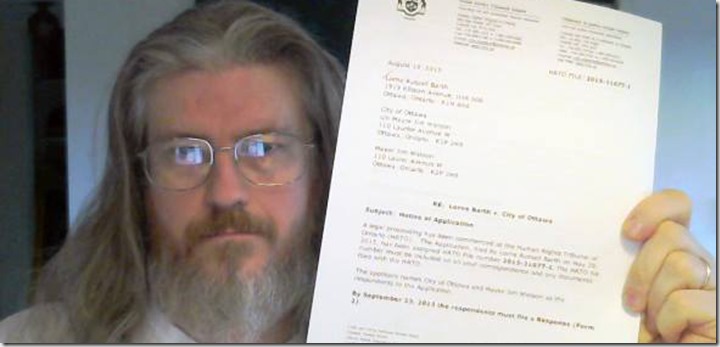Baker’s Journey Through Court
Smith acquitted, Crown will appeal extract ruling
By Owen Smith
In the past two articles (Concentrating on Cannabinoids and Criminal Trials or Clinical Trials) , I explored in detail some of the pivotal points that came from the recent successful constitutional challenge that I helped bring before the Supreme Court of British Columbia. Our victory liberated the personal production of edible and topical medicines by patients of the government’s medical marijuana access regulations (the MMAR) in B.C. However, after Judge Johnston ruled that the restriction to “dried marihuana” in the MMAR is unconstitutional, he also decreed that “society’s interests in having the charges against Mr. Smith tried on their merits outweigh the violation of Mr. Smith’s liberty,” setting the date for my jury trial to begin in Feb., 2013.
I thought in light of this upcoming event, and in relation to a lecture I gave recently at the University of Victoria for the students’ Hempology 101 clubi, I could revisit the story of my time at the Victoria Cannabis Buyers Club to reveal how I found myself in this position. I am a storyteller by night and through this have become familiar with Joseph Campbells’ hero cycle, I have borrowed this tool to help describe my journey through court.
The journey begins
I began learning about the cannabis plant when I started college in 2002—not from any of my classes, but from the small Hempology circle that was formed each Wednesday on the lawn in front of the school. In my last year at the college, I volunteered as the Hempology 101 student club president and graphic artist. After completing my associate degree, I left Victoria to learn gardening skills by working on organic farms.
During this time, my younger sister was diagnosed with melanoma skin cancer. My family cautiously followed the advice of her doctors through surgery, chemotherapy, and a schedule of drugs until it became clear that there was nothing they could do for her. My sister became a member of the VCBC, and soon after, my family and I bore witness to the effects of medical cannabis. The precious time at the end of my sister’s life was improved immeasurably by her ability to eat, sleep, and placate her chronic pain.
While visiting Victoria in the summer of 2008, I dropped by the VCBC, where I was asked to become their new baker. After the experience with my sister, I felt compelled to help others in similar circumstances, though it would mean moving back into the city and earning less money than I had as a landscaper.
I began learning to prepare the Club’s products, while getting to know the club members who used them. This helped create a direct feedback loop that gave me the opportunity to hear how the medicines I prepared were experienced by members. Being informed about the ingredients and target dose range of the products is important when answering the members’ questions, and this continues to help improve the Club’s services, as new staff at the Victoria Cannabis Buyers Club (VCBC) are often trained in how to prepare the products before anything else.
Having a diverse range of products is a way to offer something for all the different needs of the membership. Products are designed for appropriate times of day, to target a specific kind of relief, to be applied to a particular location, to take into account a wide tolerance range, and to adjust for members’ physical and mental histories. The role of cannabis and the endocannabinoid system in assisting with a wide range of human ailments is currently under worldwide scientific investigation. In the meantime, we have done our best to offer suitable options to those who seek to use cannabis medicinally.
Into uncharted territory
Over the next four years, I witnessed improvements in the products, the services, and the facility that continue to transform the Victoria Cannabis Buyers Club. Date squares (named Eccles squares, after the crown prosecutor in my trial) have replaced chocolate chip cookies, the distribution desk and vapour lounge have each doubled in size, and all member cards have been replaced with picture ID cards. Although Health Canada has continued to ignore and exclude groups like the VCBC from their regulatory schemes, these clubs will persist so long as the government continues to fail seriously ill Canadians in the pursuit of this safer medicine. The VCBC is now an incorporated non-profit society, operating a state-of-the-art point of sale system, printing receipts and paying taxes.
Knowing that each day, hundreds of Club members’ needs for appetite stimulation, sleep, and pain relief were being provided through the Club’s products filled me with a satisfying sense of purpose. Although sometimes (assisted by the crescendos of old rock records) the feeling would spring back into tears of disbelief that this situation exists at all, and that I was under threat of being punished for assisting critically ill people live their lives.
The road of trials
As fate would determine, on a chilly Dec. day in 2009, I was arrested in the bakery and charged with possession of THC for the purpose of trafficking. After holding me for eight hours in a cold, bright room, they let me out, shivering, just before midnight. Upon returning to the Club, where Ted and a few employees were still waiting, it quickly became clear that I had the full support of the Club, and that this was going to be an important case.
Initially, we thought the government would not proceed with the charges, and held a press conference announcing our online recipe book, but soon after, I received a letter containing the charges of “possession for the purpose of trafficking THC” and including a two-page criminal record of someone with a different middle name. Based in part on this mistaken identity, the Crown was recommending four months jail time. It was at this time that the magnitude of the trial began to set in. For the next three years, I would be bound to champion the medical cannabis movement.
We were joined by Kirk Tousaw, a leading expert in cannabis law who had recently moved to Vancouver Island. We gathered four club members and an expert witness, Dr. David Pate, to explain the importance of the edible and topical medicine to the court, as well as its overall safe and therapeutic profile. While continuing to assist people in gaining access to this medicine, we prepared to challenge the laws and defend our charter rights.
I was, and still am, inspired by a quote from Martin Luther King Jr. that was pinned to the back of the reception desk at the Buyers Club for some time. “An individual who breaks a law that conscience tells him is unjust, and who willingly accepts the penalty of imprisonment in order to arouse the conscience of the community over its injustice, is in reality expressing the highest respect for the law.”
Through the constitutional challenge that we launched, we successfully changed federal law to include medical cannabis derivative products like cookies, salves, hash, and honey oil. However, the judge insisted that a jury see my charges through, partially because the majority of the Club’s members have been unable to gain their doctors’ permission to join the MMAR.
While we supply every person who signs up to the Buyers Club with the paperwork to apply for the MMAR program, many have difficulties finding a doctor to sign. Although 100 percent of the membership has either a permanent physical condition, or a doctor’s recommendation to use cannabis, approximately 10 percent have gained access to the government program.
The belly of the beast
In the autumn edition of the Digest, (Educated Cannabinoid Crusaders) I summarized some of the scientific arguments put forth by the few courageous doctors who have stuck their necks out for their patients. Unfortunately, the vast majority of doctors still avoid conversations about cannabis, and reiterate myths that have been peddled by proponents of prohibition over the past decades. Engaged in a constant effort to legitimize medical cannabis, standing beside the many patients who need it, clubs like the VCBC continue to grow from the void left by the MMAR’s imposition on unprepared physicians.
Social, cultural, economic, and political factors stifle the process of educating doctors. The Canadian government cut funding for medical cannabis research in 2006ii. Pharmaceutical drug companies have little interest in sponsoring highly expensive clinical trials on simple plant products that can be made easily by anyone for free. Drug companies have failed to create an equally effective synthetic cannabis product. Mainstream media has persistently distorted the scientific findings released regarding cannabis; an article published in Science Daily cites a study reporting the results of 18 female volunteers given artificially induced sunburn and then a dose of oral cannabis. The unfortunately small study was used to make the headline, “Oral Cannabis Ineffective in Treating Acute Painiii”.
The Canadian Medical Association concluded in their 2011 Medical Marijuana Policy that “The generalizability of the conclusions from published studies are limited by methodology, (double blind placebo controlled trials are not possible; previous users of marijuana are often excluded) and very small sample sizes. While it may be the case that medical marijuana is efficacious, scientific evidence comparable to other prescription pharmaceuticals is still lacking”.iv
In the last decade, just over 21 thousand people across Canada have gained access to the program, which the government predicts will increase to near 450 thousand in the next ten yearsv. This may well be an underestimation, as approximately six to seven million Canadians live with chronic pain, according to the Canadian Pain Society, and many with the unwanted physical side effects of the only available medications.
Ontario activist, Matt Mernagh had a decision overturned by the Ontario Court of Appeal on the inaccessibility of the government program. He had unsuccessfully showed that medical cannabis users are forced to face an unwilling gatekeeper, while being marginalized by the media, ignored by politicians, and branded criminals for life by the laws: factors that put unacceptable pressure on these unfortunate souls.
The turning point
We began preparing for the jury trial by gathering a variety of Club members to testify. We were happy to have many offers from members who have been using cannabis cookies, oil caps, lozenges, and other products I was making for the VCBC to treat their medical needs where other medication had failed. Many members also offered to relate how difficult accessing the MMAR program has been for them.
The members would help us present the defense that it was necessary for me to break the existing law in order to prevent their ongoing suffering. The classic example is “To steal a loaf of bread to feed one’s starving family,” though in this case, nothing was stolen, and an entire community benefited.
On Dec. 21, 2012, I received a phone call from my lawyer Kirk Tousaw, revealing that the Crown did not believe they could convict me, promising an acquittal and canceling the jury trial. I am now scheduled to appear on Jan. 10 to have my charges thrown outvi.
A persistent foe
While this news marks a successful dissolving of the legal punishments against me, the repercussions of the scientific facts established in our court case will continue to be felt by the government program until they allow for edible and topical extracts.
In what seems like a last-ditch effort to duck out of the line of fire, the government has recently proposed changing the medical marihuana program from the MMAR to the MMPR to address concerns brought to them by law enforcement and fire officials. Despite the Supreme Court judges’ order in my case, the recently proposed changes to the regulations continue to restrict authorized patients to dried cannabis only. Prioritizing the requests of law enforcement officials over the needs of patients reveals the Canadian government’s persistent distrust of medical cannabis users, and apparent disregard for the constitutional laws that protect them.
Victory and tragedy
As we continue to grow as a society, situations like mine have arisen, in which outdated laws have been defeated. This process has resulted in refined accuracy in our justice system, and a better order for society as a whole. Examples of laws that have been broken by a meeting of fate and conscience include those restrictive of race, gender, and sexuality rights. Drug laws, when they affect a person’s ability to access a suitable medicine, effect everybody.
During the three-year court ordeal, I was offered new opportunities by the club and given the sincerest gratitude of the members. Thanks to all the support, the responsibility became an inspired opportunity for me to strengthen my knowledge of the plant and share that knowledge in each Cannabis Digest. Making many new friends has made this an invaluable experience that I will proudly, many years from now, tell my grandchildren about.
Despite this victory, the tragedies for patients persist during the drawn-out legal battle for their medicine. People who are severely unwell die hiding from society, finding their last solace in a condemned flower under the foot of unyielding politicians, considered outcasts and criminals by the collective corners of our society, where the light of this medicine hasn’t yet shone.
Many people who didn’t have the support to challenge the status quo passed away before they had a chance to tell their story. It should be a forceful blow to anyone’s conscience to realize that this grassroots movement is powered almost exclusively by ill and injured people, and those who love them and have lost them. I encourage all of our members to speak with their friends and family about their use of cannabis, in order to bust the seams of this social stigma, and lighten the consciences of those unfortunate enough to need cannabis as a medicine.
Sharing in the boon
Over the crumbling walls of prohibition, encrusted with social stigma, spot-lit by media cameras and spiked with crude criminal punishments, the words of inspired activists of the past ring louder than ever with hope for a better world. Martin Luther King said, “Never, never be afraid to do what’s right, especially if the well-being of a person or animal is at stake. Society’s punishments are small compared to the wounds we inflict on our soul when we look the other way.”
Ted started the VCBC in 1996 from his van, with a pager and a pamphlet. Seventeen years later, the renovated downtown storefront is a hub for the budding Victoria medical cannabis community, comprised of more than three thousand active members. With the growth of the club continuing, and new clubs emerging, it won’t be long before everybody in town will know somebody whose life has been changed for the better by medical cannabis.
References
[i] Hempology 101 UVIC Lecture 11, Dec. 2012
http://www.youtube.com/watch?v=1SHb-wOZiE0
[ii] Cut to marijuana research sends strong message
http://www.cmaj.ca/content/175/12/1507.full
[iii] Science Daily June, 2008.
http://www.sciencedaily.com/releases/2008/06/080624151827.htm
[iv] C.M.A. Policy, Medical Marijuana
http://policybase.cma.ca/dbtw-wpd/Policypdf/PD11-02.pdf
[v] Marihuana for Medical Purposes Regulations
http://gazette.gc.ca/rp-pr/p1/2012/2012-12-15/html/reg4-eng.html
[vi] Pot baker in clear, but more battles may loom
http://www.timescolonist.com/news/local/pot-baker-in-clear-but-more-battles-may-loom-1.36406





